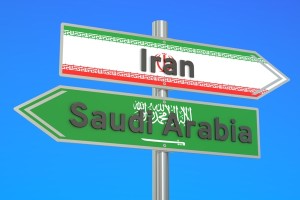OPEC might still agree an oil output-limiting deal later this year as the economic problems of its de-facto leader Saudi Arabia force Riyadh to cede more ground to arch-rival Iran.
Saudi Energy Minister Khalid al-Falih said on Tuesday Iran, Nigeria and Libya would be allowed to produce “at maximum levels that make sense” as part of any output limits which could be set as early as the next OPEC meeting in November.
That represents a strategy shift for Riyadh, which has previously said it would reduce output only if every other OPEC and non-OPEC producer followed suit. Iran has argued it should be exempt from such limits as its production recovers after the lifting of EU sanctions earlier this year.
The Saudi and Iranian economies depend heavily on oil but in a post-sanctions environment, Iran is suffering less pressure from the halving in crude prices since 2014 and its economy could expand by almost 4 percent this year, according to the International Monetary Fund.
Riyadh, on the other hand, faces a second year of budget deficits after a record gap of $98 billion last year, a stagnating economy and is being forced to cut the salaries of government employees.
“Does the salary cut indicate the Saudis are ready for a fight or does it indicate that they are ready for a deal,” said an OPEC source from a Middle Eastern producer, when asked about the Saudi shift.
Iranian Oil Minister Bijan Zanganeh said on Wednesday talks about a deal to cap output were ongoing. OPEC will hold an informal meeting at 1400 GMT, following by a formal, regular gathering on Nov. 30.
via Reuters
